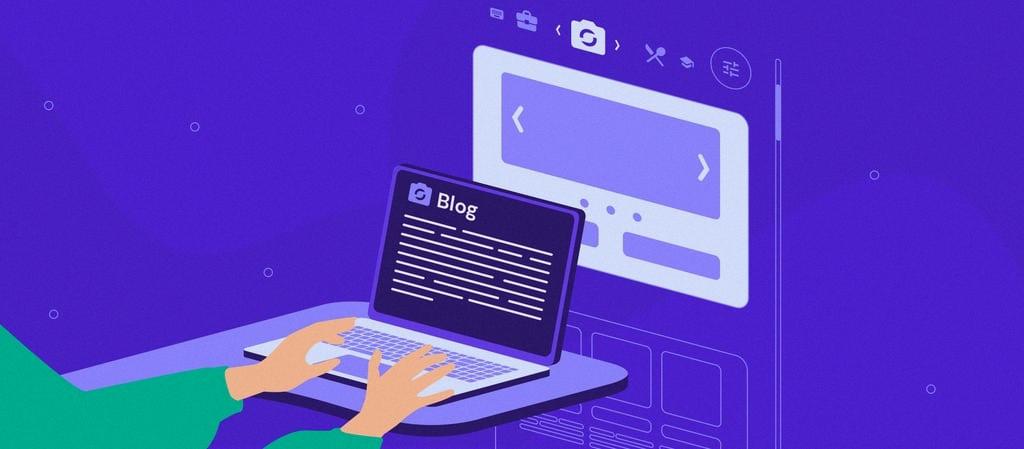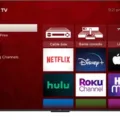Anonymous blogging is becoming increasingly popular, especially amongst those who want to keep their identity and personal information private. Anonymous blogging allows you to write, post, and share without revealing your identity. This can be beneficial for those who may feel uncomfortable about openly discussing certain topics or even for those who want to protect their privacy.
There are two main ways to start an anonymous blog: using a pseudonym or using an anonymous blogging platform. Using a pseudonym is the most popular choice since it allows you to create a unique name that will not be linked to your real identity. This means that you can still have control over the content that you write and post without revealing your true identity.
When it comes to anonymous blogging platforms, there are many available today. Telegram. ph is one of the most popular options as it allows users to write and publish posts without having to sign up for an account or provide any personal information. Write. as is another great option as it provides distraction-free writing capabilities with no registration required. TXT and Notepin. co also offers similar services while WordPress and Ghost give users more customization options when building their blog sites.
Overall, anonymous blogging can be a great way for anyone looking for increased privacy online while still being able to share their thoughts and opinions in an open forum setting. By using a pseudonym or taking advantage of one of the many anonymous blogging platforms available today, anyone can start a blog without worrying about revealing their true identity or personal information online!
Can Anonymity Be Achieved Through Blogging?
Yes, it is possible to create an anonymous blog. However, you will need to choose and publish your content under a pseudonym instead of using your real name. Choosing a pseudonym is a common practice amongst authors, novelists, and bloggers alike. When creating an anonymous blog, it is important to take extra steps to ensure that your identity remains anonymous and secure. This can include using a VPN when accessing the internet, creating unique passwords for all of your accounts, being careful not to reveal any personal information such as your location or contact details in the content you post online, and making sure that all of your accounts are linked only with each other rather than with any other account associated with your real name. Taking these necessary precautions will help ensure that you remain anonymous when blogging.
Do Anonymous Bloggers Receive Payment?
Yes, anonymous bloggers can get paid for their content. Many different monetization methods exist, including displaying ads on your blog, affiliate marketing, sponsored posts, and selling your own products.
With display ads, you can earn money each time someone clicks on the ad or views it. You can use services like Google AdSense to quickly and easily set up ads on your blog. With affiliate marketing, you can earn a commission each time someone purchases a product through an affiliate link that you have posted on your blog. Sponsored posts involve being paid to write about a specific product or service. Lastly, if you have the skills and resources to create products such as digital downloads or physical goods (like t-shirts or mugs), you can sell them directly from your website.
It is important to remember that anonymous blogging does not guarantee success or income; it is still necessary to create quality content and build an audience in order to make money from blogging.

Source: hostinger.com
Setting Up an Anonymous Blog
Setting up an anonymous blog is relatively straightforward. First, purchase a domain name that does not contain any personal information. Then, use a hosting service that will keep your information private and secure. For extra security, you can use a Virtual Private Network (VPN) to hide your IP address. Finally, create the necessary web pages and configure the site in order to make it anonymous. Make sure not to include any identifying information in the content of your blog or anywhere else on the website. If you want further protection, consider using privacy-focused web browsers like Tor Browser or Brave Browser. With these steps, you can set up an anonymous blog quickly and easily.
Posting An Anonymous Blog: Where to Go?
Writing anonymously can be a liberating experience, allowing you to express your thoughts and feelings without fear of judgment or repercussions. Fortunately, there are many platforms today that allow you to post an anonymous blog.
Telegra.ph is one of the most popular anonymous blogging platforms. It is part of the Telegram messaging app, and it offers a simple way to create and share posts without needing to create an account or enter any personal information. Write.as is another great platform, offering a distraction-free environment so that you can focus on writing and publishing your content without any hassle. TXT is another platform that supports anonymous posting and offers various styles for customizing your posts. Notepin.co also allows for easy anonymous blogging, as it does not require any signup process or personal information before creating a post. WordPress also provides an option for creating anonymous blogs through its “private” feature, which allows you to keep your blog hidden from public view until you’re ready to share it with others. Finally, Ghost is another blogging platform that provides options for setting up an anonymous blog with just one click.
Whether you’re looking to express yourself without fear of judgment or simply want to remain anonymous while sharing your thoughts online, these platforms are all great options for hosting an anonymous blog.
Tracking Blogs
Yes, blogs can be tracked using Google Analytics. By linking your blog to your website, you can easily track the number of visits to your blog, the sources of traffic (e.g. social media, search engines), the most popular pages, and more. Additionally, you can track engagement metrics such as time on page and bounce rate to see how successful your content is at converting readers into followers and customers. With this data, you can make informed decisions about which topics and formats are most successful in drawing traffic and engaging readers.

Source: scientific-publishing.webshop.elsevier.com
Starting a Blog Without Spending Money
Yes, you can start a blog with no money. There are various platforms, such as WordPress and Blogger, that allow you to create and host a blog for free. These sites provide templates and tools that make it easy to incorporate features such as social media integration, custom domains, and search engine optimization (SEO). You can also use these platforms to monetize your blog through affiliate programs and ads.
Once your blog is up and running, there are still some additional costs that may be necessary depending on your goals. For example, if you want to take better photos for your posts or create custom graphics for your site, you may need to invest in photography equipment or graphic design software. You may also need to pay for hosting if you decide to move away from the free blogging platform you initially chose.
However, if starting a blog is something you’re passionate about and willing to dedicate time and effort to, it is possible to do so without spending a lot of money upfront. With patience and hard work, blogging can be a great way to generate income while doing something you love.
The Success of Anonymous Blogs
Anonymous blogs can absolutely be successful, but success is ultimately determined by the quality of content and marketing strategy. It is possible to make money from an anonymous blog, however, it will require a well-thought-out plan in order to do so.
When blogging anonymously, it’s important to focus on creating content that is engaging, informative and entertaining. You must also be aware of how you are positioning yourself within your niche, as well as how you are representing yourself online. This means avoiding any inflammatory or controversial topics that could give away your identity. Additionally, you should consider how best to promote your blog and get readership – organic search engine optimization (SEO) techniques are ideal for this purpose.
Finally, it’s important to develop a monetization strategy. While ad campaigns and affiliate programs can be effective ways to make money with an anonymous blog, many bloggers have found success with selling their own products or services online. For example, many anonymous bloggers have created digital products such as ebooks or courses which can be sold directly from their website.
Overall, anonymity can present its own set of challenges when trying to make money with a blog; however, with the right strategy and content, it is certainly possible to achieve success with an anonymous blog.
The Benefits of Blogging Anonymously
People blog anonymously for a variety of reasons, including privacy, anonymity, and the ability to express themselves without fear of judgment. Anonymity allows people to write freely without worrying about how others perceive them or their opinions. It also allows them to explore new ideas and topics without fear of potential backlash or criticism. Additionally, anonymous blogging can provide a platform for individuals to express their thoughts and experiences in an environment free from personal bias or scrutiny. Finally, anonymous blogging can help people share content with a wider audience, as it eliminates the risk of being judged based on personal identity.

Source: americanexecutivecenters.com
Conclusion
In conclusion, anonymous blogging can be an effective way to share content without revealing your personal identity. Many popular platforms exist that allow you to easily create and publish your content with a pseudonym or alias. You can also monetize anonymously by using ads, affiliate marketing, sponsored posts, and selling your own products. Additionally, you can use a virtual private network (VPN) to hide your IP address and protect your online privacy and anonymity. Anonymous blogging can be a great way to express yourself without the fear of judgment or backlash from society.








